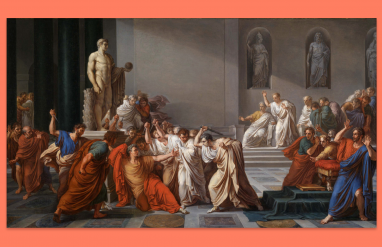Iambic pentameter
When the love-struck Romeo first sees Juliet emerge on her balcony, what poetic form could mirror his pounding heart? Iambic pentameter of course. “But, soft! What light through yonder window breaks?” Shakespeare wrote in iambic pentameter because it was believed to imitate the human heart beat. The word comes from the French iambique meaning “a foot of verse,” referring to the form’s basic two-syllable verse unit: unstressed, stressed (e.g., dum DUM). Pentameter comes from the Greek meaning “five” (five feet per line).



















